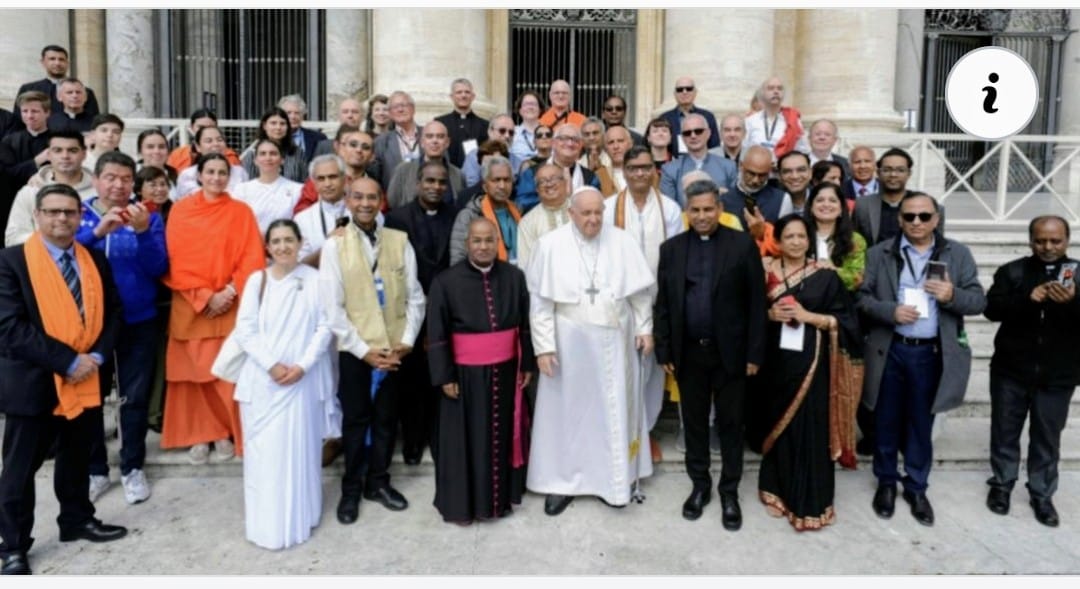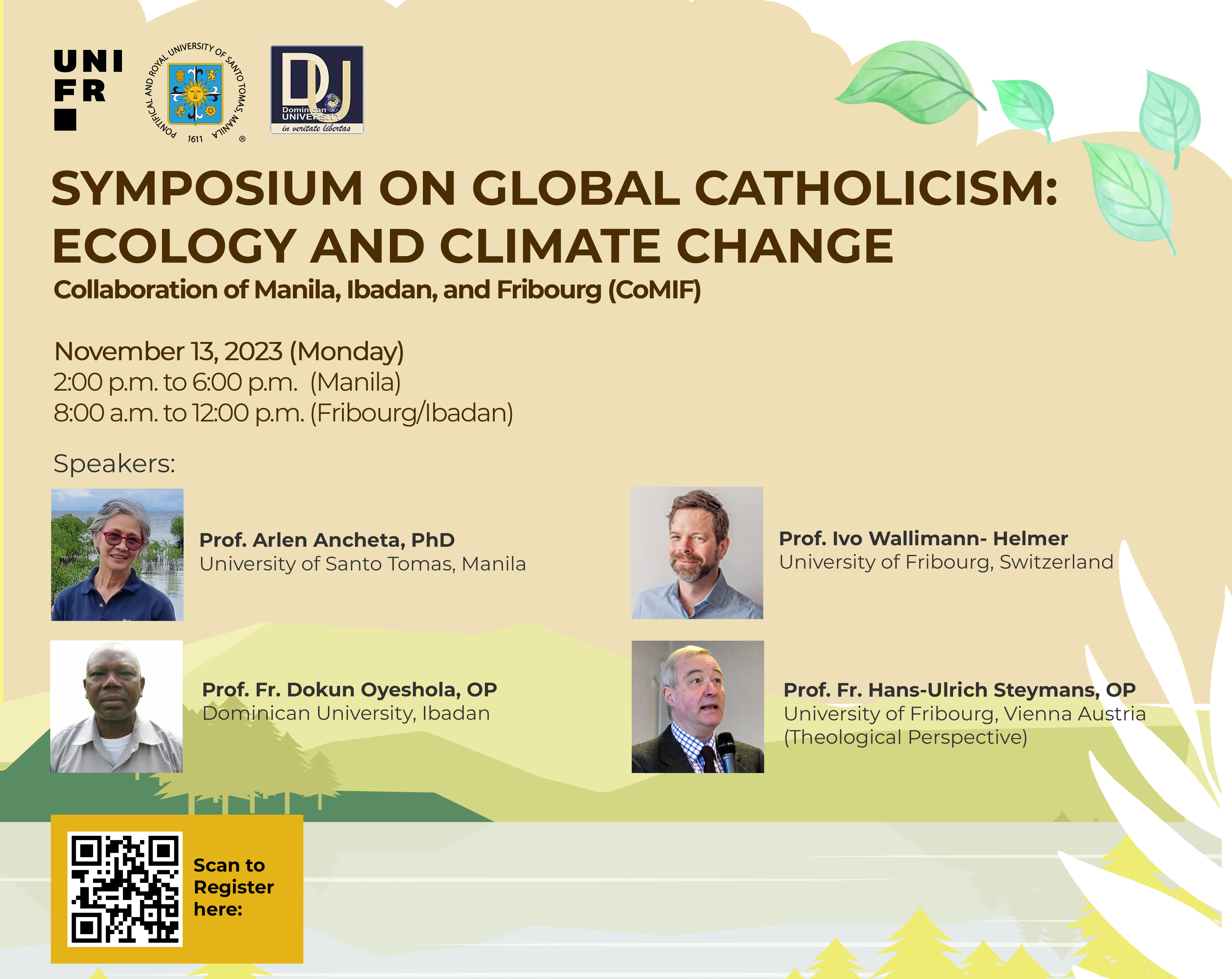Conference: Comparison and Comparative Theology
Program
2023, October 5th – 7th Université de Fribourg
Thursday, October 5th –– Centre Sainte-Ursule, Rue des Alpes 2, La Salle François d’Assise
––––––––––––––––––––––––––––––––––––––––––––––––––––––––––––––––––––––––––––––
13h Conference Opening : Coffee
13h15 Helmut Zander (Religious Studies / Comparative History of Religions), University of Fribourg
Introduction, Technical Questions
14h Catherine Cornille (Catholic Theology, Chair of Western Culture), Boston College
Comparing the Tertium Comparationis in Comparative Religion and Comparative Theology
15h Coffee Break
15h30 Ralph Weber (European Global Studies), University of Basel
Confucianism as Religion and as Pre-Comparative Tertium: On the Possibility and Limits of Comparison
16h30 Lea Schlenker (Protestant Theology / Islamic Theology), University of Tübingen
Comparing Theologies at the Table On Perspectives from Religious Studies in Comparative Theology after the Practice Turn
18h30 Dinner – Café du Gothard
Friday, October 6th –– Université de Fribourg, MIS 10 01.13 (Miséricorde 10, Room 1.13)
––––––––––––––––––––––––––––––––––––––––––––––––––––––––––––––––––––––––––––––––––––––––––––––––––––––––––––––––––
9h30 Mathieu Cudre-Mauroux (Catholic Theology), University of Fribourg
Problems of comparison when doing non-text-based Comparative Theology
10h30 Coffee Break
11h Klaus von Stosch (Catholic Theology / Systematic Theology), University of Bonn Syriac and Qur’anic Theology of Signs in Dialogue. How to Learn from Comparisons within Catholic Systematic Theology
12h Lunch
14h Jens Schlieter (Religious Studies / Buddhist Studies), University of Bern
Doing Comparative Religion by Comparing Ethics: Thomas Aquinas' Doctrine of the Double Effect, the "Trolley Problem," and Buddhist Ethics
15h Coffee Break
15h30 Scott Steinkerchner O.P. (Catholic Theology), Dominican University, River Forest (Il.)
Deconstructing Gender Essentialism: A Comparative Reading of Julian of Norwich and Yeshe Tsogyal
17h45 Short Cultural Tour of Fribourg
18h30 Dinner – BekaaHouse
Saturday, October 7th –– Université de Fribourg, MIS 10 01.13 (Miséricorde 10, Room 1.13)
––––––––––––––––––––––––––––––––––––––––––––––––––––––––––––––––––––––––––––––
9h30 Lora Walsh (Religious Studies and Literature), University of Arkansas
Mother Church as Christian Goddess in Comparative Perspective
10h30 Charles Gillespie (Catholic Theology), Sacred Heart University, Fairfield, (Ct.)
Dramas of Comparison in Theology and Religious Studies
11h30 Coffee Break
12h Roundtable Discussion
Commentary: Joel Sagut (Catholic Theology), University of Santo Tomas, Manila Closing Remarks

Erstmals haben sich am 2. Mai in Rom auf Einladung des vatikanischen Dikasteriums für interreligiösen Dialog Christen und Hindus aus Europa ausgetauscht. Organisiert war das Treffen in Zusammenarbeit mit dem Hindu Forum of Europe, der italienischen Hindu Union und dem Ökumenischen Rat der Kirchen. Unter den rund 50 Teilnehmern aus Europa war auch Helmut Zander, Professor für Religionswissenschaften an der Université de Fribourg in der Schweiz. Wir haben ihn zum Interview ins Radio eingeladen.
____________________________________________________________________________________________________________________________________________
The Nons
Online workshop within the cooperation between the Universities of Manila, Ibadan and Fribourg in the research-programme "Global Catholicism"
April 27th, 2023
Secularisation seemed to be a temporary phenomenon. The fact that a larger number of people did not belong to any religious community, as in the Soviet Union or other communist countries, could be considered a phenomenon of the past after 1989. But sociological data suggest a different development: the number of "nons", of people who do not belong to any religious community or see themselves as agnostics or atheists, is relatively stable – and their number is growing. And the conviction that this is a phenomenon in Western countries, seems to be weakly substantiated either. Especially if – for example – this decline is related to general individualization, one has to discuss whether such developments could then also increase outside Western countries.
We will explore these questions in the transcontinental workshop on the "nons". On the one hand, the discussion will be about perceiving and interpreting developments in the sociology of religion in three countries: the Philippines, Nigeria, and Switzerland. Then we will explore the fundamental question of whether these secularisation processes are regional or global developments. Fundamental assessments of the worldwide development of religions and their social significance depend on the answer to this question.
The event is also part of a program of research on global Catholicism, which is the largest single religious community in the world, but widely poorly researched.
Credit points are awarded according to the rules of the respective universities.
The students of Université de Fribourg can receive 1.5 points for their participation in the workshop and the subsequent completion of a short paper (Hausarbeit) of no more (!) than ten pages.
For registration and more information please contact Viktoria Vitanova-Kerber victoria.vitanova-kerber@unifr.ch

